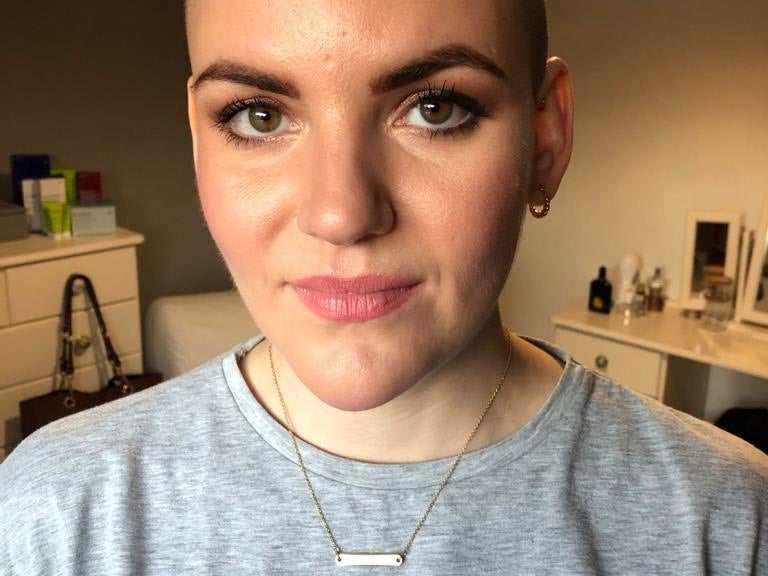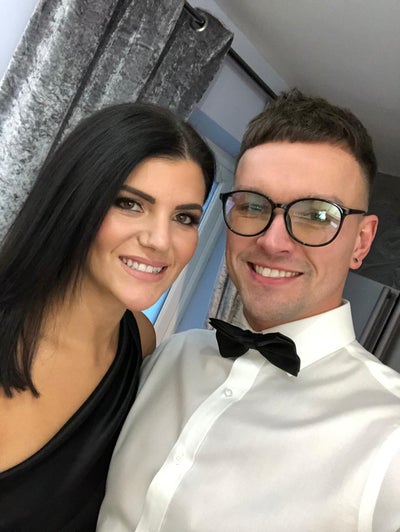
"You question your own mortality when you're diagnosed with blood cancer. But there is a way out of this"
It was in March 2019 that I first started to feel unwell. I used to work for an international skin care company where I would travel the world training spa therapists using our products. I had been doing this for a few years and started feeling really tired.
At first I put it down to jet lag but then I started developing reoccurring tonsillitis so I went to see my doctor. At the appointment my doctor noticed I had a fair bit of bruising so he referred me to a hematologist. The tests revealed that my bloods weren’t right but they couldn’t work out what was causing it, and at that point, to be honest, I just thought I probably needed my tonsils out and that I might be anaemic.
Diagnosis and treatment begins
I had a number of different tests from a CT scan and an endoscopy (camera down the throat) where they found a node in my neck was enlarged. Then finally when I had a bone marrow biopsy in December 2019, nine months after I originally went to the doctors, I was diagnosed with acute myeloid leukaemia (AML). When I went into the room there was a consultant, two nurses and a registrar who told me I had this aggressive form of cancer that develops really quickly. The cancer had developed in my bone marrow which is why it wasn’t showing in my blood.
It was the weirdest emotion and I felt like I was in a bubble. Everything was in a dream state. They wanted me to start treatment straight away, but I was concerned about my fertility so I delayed it slightly to get my eggs collected. This wasn’t recommended but it was really important to me.

I started four rounds of chemotherapy at the end of Jan 2020. When you have your chemo for leukaemia you are isolated in a room because the chemo is so aggressive it kills your bone marrow and kills your immunity. It is really dangerous to go home and you have to have regular blood transfusions until your body starts creating white blood cells again.
Then Covid-19 happened, so I was in a room on my own for 148 days during treatment. I went into remission on 1 July 2020, then I had to have regular bone marrow biopsies to check for cancer. On my six-month mark I found out I had relapsed. This was over the festive period. I had started feeling unwell and my partner and I got tested for Covid-19. Sadly I found out I had Covid and my cancer had come back on the same day, 30 December.
Cancer and Covid-19
I got increasingly unwell with Covid-19 and started coughing up blood so an ambulance was sent for me to go into hospital. I was really unwell with Covid-19 for a few weeks as my body was already compromised with the cancer. I recovered towards the end of January then had to have three consecutive negative Covid-19 tests before I was allowed to start my cancer treatment.
I went back into hospital on 10 February to start treatment and now I am having intense chemotherapy to prepare my body for a stem cell transplant.
Become a donor
Signing up to be a potential blood stem cell donor is one of the easiest processes and starts by spending only a couple of minutes online. DKMS send you the swabs, you swab the inside of your cheeks for a couple of minutes, then post it back to them for free. That’s all there is to it; you are registered and if you’re a match, DKMS contact you and you have some tests to check you are the best match for the patient.
you are chosen as the patient’s perfect match, nine out of 10 donations are given through a process similar to giving blood. Your blood stem cells replenish themselves after two weeks so you don’t lose anything. What’s required of you is so small compared to the massive impact you could have on someone else’s life!
You question your own mortality anyway when you have been diagnosed with cancer because you know what the outcome could be, and this is literally giving people hope because there is another way out of this.
How you can help
If you’d like to register as a potential blood stem cell donor you can check your eligibility and request a home swab kit today.
Anyone aged between 17-55 and in general good health can go on standby as a potential lifesaver. If you're not eligible or you're already registered, why not check the other ways to get involved in the fight against blood cancer or help us cover donor registration costs?


